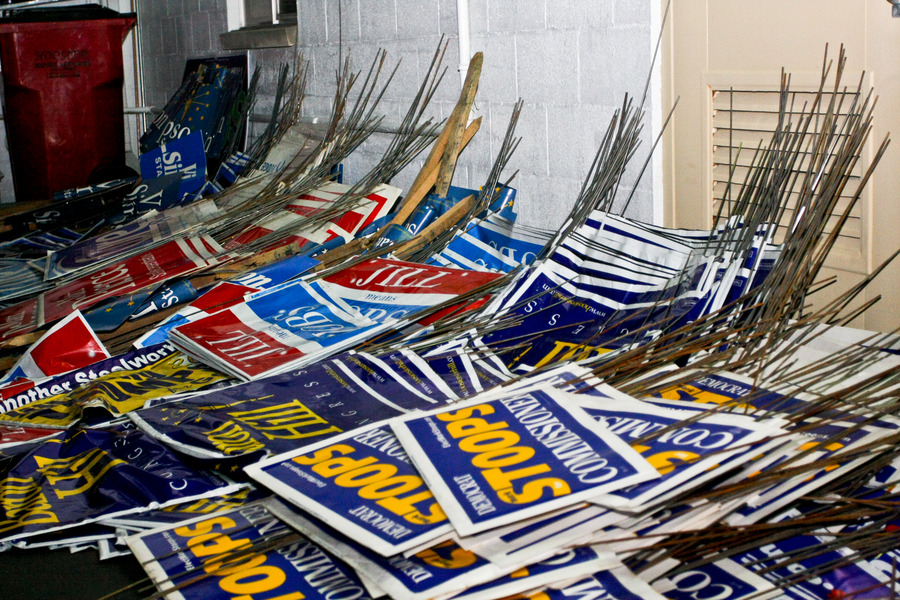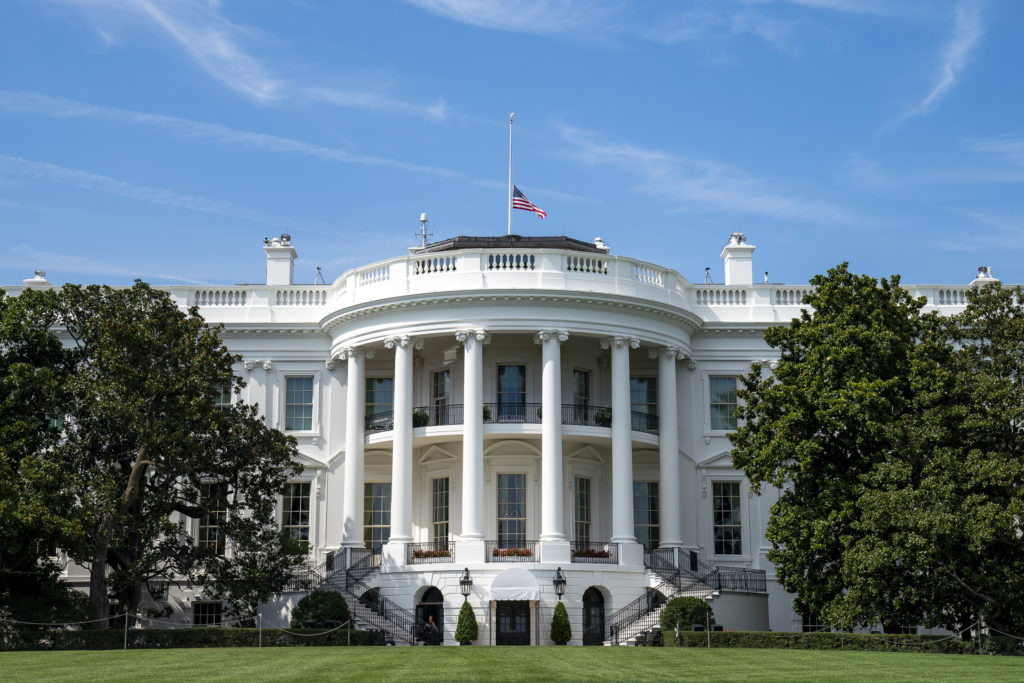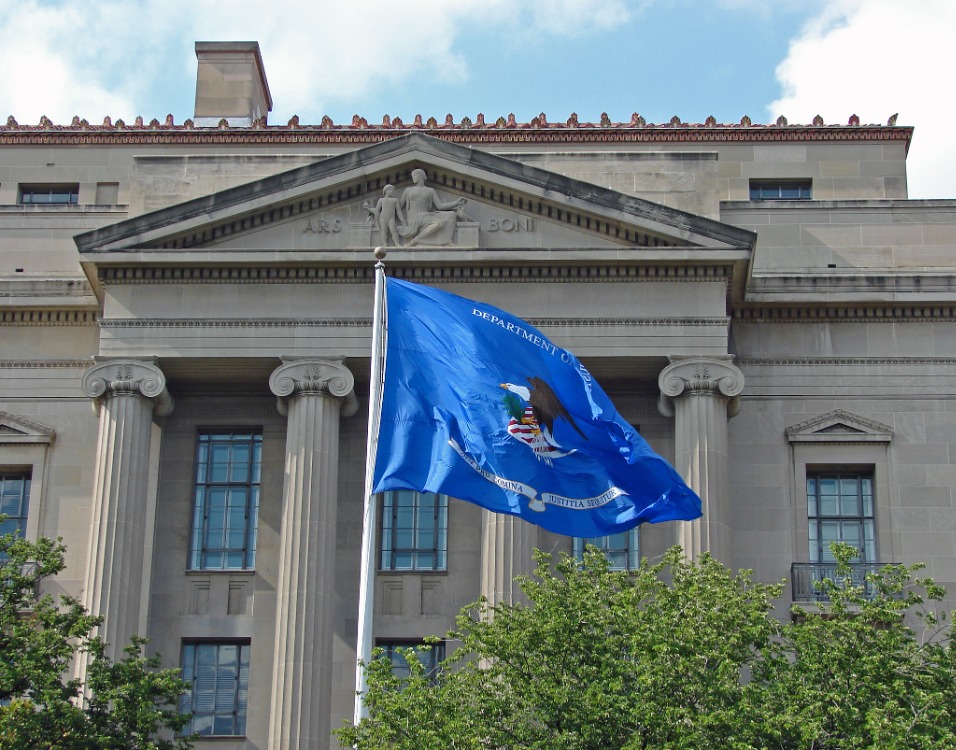There Are Guardrails in Place to Avert Partisan Manipulation of the Election Outcome

Published by The Lawfare Institute
in Cooperation With

As Election Day draws near, anxieties are running high among Democrats about how partisan actors backing Donald Trump might seek to steal the 2024 election. Trump himself has commented that “the only way we’re gonna lose” is “if they cheat,” raising the specter of another attempt to upend the election results like the country saw in 2020. The danger is real, but much of the speculation about mechanisms Trump or his allies might use to overturn election results risks unnecessarily raising the anxiety level of voters. To be sure, partisan actors might well try various ploys to manipulate the outcome, particularly if the election hinges on one or two states. But there are significant legal, institutional, and political guardrails already in place to thwart these partisan efforts.
A recent essay Neal Katyal authored in the New York Times is a good illustration of these anxieties. Katyal raised several nightmare scenarios for “a potential election crisis" under which, in his view, corrupt partisan actors could seek to deprive Vice President Kamala Harris of a lawful victory, if in fact she wins the election. But in each of the scenarios Katyal raises, the guardrails that are already in place should temper these concerns.
First, Katyal worries that rogue governors might manipulate the certification process. Much of his essay rests on envisioning plots in which corrupt governors play the central role. But simply speaking politically, this is unlikely in any decisive state. In nearly all the swing states, the governors are Democrats, who are hardly going to be receptive to any entreaties by Trump. Georgia is an exception, but the key figures in Georgia, Gov. Brian Kemp and Secretary of State Brad Raffensberger, have done as much under fire as any political officials to prove their commitment to certifying an accurate, lawful count. Nevada is the only potentially swing state with an untested Republican governor. But there it’s the secretary of state (a Democrat), in conjunction with a majority of the state’s supreme court judges, who canvass the vote and transmit it to the governor. I suppose one could also worry about Nebraska, with a Republican governor, if the election comes down to the single electoral vote in its Omaha-based congressional district.
But even if there were strong reasons to worry about this from a political perspective, provisions of the Electoral Count Reform Act were specifically designed to eliminate the risk of a rogue governor. This is the Act a bipartisan Congress passed at the end of 2022 to help ensure the integrity of the presidential election. The framers of the Act envisioned exactly the risk Katyal raises and directly addressed it.
The Act creates an expedited process in which courts have the last word on the lawful counting of votes. And if a governor attempts to defy the courts, the Act also makes the final judicial ruling—and not anything else—what’s binding on Congress when it counts the electoral votes on Jan. 6, 2025. In short, rogue governors in key states are unlikely in the first place and the law has mechanisms in place to deal with that. That by itself addresses most of the major corrupt scenarios Katyal imagines.
Next, Katyal worries about county and local election officials. His worry is that county election officials in some areas might refuse to certify their county’s vote for misguided or manipulative reasons. That might indeed happen in a few places, but it will not “wreak havoc” on the process. It happened in a few places in 2022 and the state courts immediately dealt with the issue. Indeed, the courts in Georgia – a state Katyal worries about – have already held that certification is a mandatory obligation of state and local officials. State courts will issue orders requiring certification, with criminal or civil penalties for non-compliance. If county officials still refuse to certify accurately, most state courts have the power to direct another official to carry out the court’s order. In some states, governors also have the power to replace county election officials who fail to comply with their obligations. All of this will take care of any unlawful failures to certify.
Third, Katyal worries about state legislatures. His concern is that they might make baseless allegations to flip the election to the losing candidate. But this would be both unconstitutional and a violation of multiple federal laws. If state legislatures in effect change the rules of the election after people have voted, that would violate due process. Federal courts have ruled that changing election rules after the election, in the guise of “interpreting” state election laws, violates due process. It would also violate the federal Election Day statute, which requires the electors to be chosen by election day. Legislatures have no power to choose electors after that day.
And again, the Electoral Count Reform Act (ECRA) was specifically designed to deal with this scenario. The Act explicitly requires electors to be chosen by laws enacted in advance of the election. Katyal still worries a legislature might try to passnew laws to do this, as long as they have a supportive governor. But I’ve already explained why rogue governors are unlikely and can’t get away with this anyway.
As a smaller point, Katyal is incorrect when he writes that state legislatures “might make baseless allegations of fraud and interfere to get a different slate of electors appointed to the Electoral College, as happened in 2020." No legislature interfered in 2020 to get a different slate of electors appointed. Some individual legislators tried, but that is a far cry from getting an actual legislature to do so.
Finally, Katyal worries about Congress. He invokes the risk that Congress could “swing the entire election” through partisan manipulation for its preferred candidate. I have explained in detail elsewhere why this would be illegal under the ECRA. The Act prohibits Congress from second guessing the voting process in a state:
The Act specifies that there are only two bases on which Congress can lawfully object. One is if the state’s electoral votes are not “regularly given.” This term is a carryover from the 19th century version of the Act. As Professor Derek Muller has carefully documented, this term has a specific meaning based on long-standing historical understanding and practice. It has always referred only to issues that might arise with the electors themselves after the state has determined who won the presidential election in that state. Thus, if an elector casts their vote at the wrong time or place, or in the wrong manner, or did not report their votes to Congress according to law, or if their vote was cast due to duress or a bribe, it would not be regularly given. This provision also gives Congress the power to reject a candidate who is not qualified constitutionally to hold the office.
These and related examples are what make an elector’s vote not “regularly given.” But this provision does not give Congress any power to second guess the voting process that led to those electors being chosen – that is, that led one candidate to win that state’s electoral votes. Any disputes over that process are to be addressed and resolved in the state and federal courts, which have the fact-finding capacity, the time, and the adversarial processes that Congress in the Joint Session on Jan. 6th lacks.
The second and only other basis on which the bipartisan Congress agreed it could lawfully object is also extremely limited. Congress can object if the document a governor sends in, identifying the electors, is defective in some way. Again, this provision does not give Congress the power to second guess the voting process in a state. Indeed, Sen. Ted Cruz voted against the Act precisely because it shut down Congress’ power to do so.
The entire thrust of the ECRA is to emphasize that any disputes over the voting process are to be resolved in the courts, not in Congress.
Would Congress nonetheless defy the ECRA and act illegally? To reject a state’s electoral votes would require a majority in each house of the newly elected Congress. No matter which party controls the House and Senate, its margin is expected to be thin. Sen. Susan Collins was the leader oncr the Republican side in the bipartisan Senate group that drafted the ECRA. Other Republicans in that group who will still be in the Senate in January 2025 include Lisa Murkowski, Todd Young, and Shelley Moore Capito. Let’s assume for the sake of analysis Republicans control the House and have 51 or 52 Senators. It would still take only one or maybe two Republicans to abide by the terms of the ECRA that they themselves drafted to defeat any plot in Congress to steal the election.
There is no way to make the system entirely failsafe against all risks. I’m particularly worried that Pennsylvania and Wisconsin will have long delays in getting to a definitive result, given that their laws still – unconscionably – refuse to permit their election officials to start processing absentee ballots until election day. If the results of the election cannot be known for several days, this will almost inevitably spawn suspicion and distrust, fueled by social-media conspiracy theories, and might lead to major efforts to disrupt the vote-counting process. In advance of the 2020 election, I wrote that this dynamic of late vote counts would likely be a major focal point of efforts to delegitimize the outcome. I fear the situation is even worse this time around. Too many voters are already primed in advance this time around to believe the election is “being stolen” if the numbers change dramatically overnight and in the days after the election.
Post-voting partisan efforts to manipulate the process could undermine public confidence, be disruptive, and even lead to civil unrest. But there are many more mechanisms in place than a lot of anxious public commentary recognizes to ensure the lawful outcome of the 2024 election.





